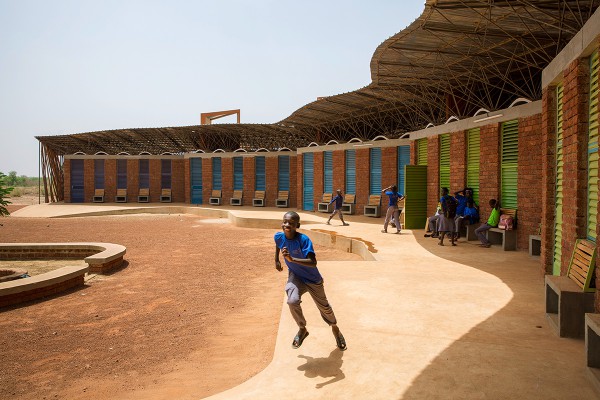As we slowly stir to life, let’s start 2019 with a few uplifting words from our current issue mono.kultur #46: architect Francis Kéré on his legendary and infectious sense of optimism.
And yet, it feels like there is so little time in the face of global crises like climate change or migration, both of which affect Africa immensely. Does optimism negate the urgency of these issues? Don’t we need to be more pessimistic to accelerate change?
Optimism in this case is not neglecting the urgent problems that we are facing. The issues we are dealing with are serious, big, and dramatic, so of course we have to be conscious of them. But I am not sure being pessimistic would help. I see in crises an opportunity to create and be inventive. They can push us, designers and architects, back to the reality of architecture. We have to be inventive, not pessimistic. The change, of course, needs to come fast, but we should avoid solutions that are not completely thought through, as they may have a negative impact that the next generation will have to fix. For example, if you take the Parisian suburbs, the banlieues, they were quickly developed, but today the city is struggling to deal with these sensitive neighbourhoods, which in urban politics have come to be seen as incubators of problems.
So you’re a pragmatist as much as an optimist.
It’s about being ready to adapt. If you come with ideas sewn up like a corset, with no possibility to change, then they will not work. That’s why I remain so focused on the idea of dialogue. I always ask what is possible: how can we adapt, what do we need to redesign, where can we improve.
So in that regard, do you see building as being a social act in the truest sense of the word? Can it be designed in advance, on paper, or is it meaningless until people are involved?
Once you get people involved, you are transferring ideas. That’s really what the social aspect is about: transfer. It’s not about design so much as a process of communication. Creating a sort of vehicle for an idea. The social impact becomes much bigger, because not only do people gain an object; they gain knowledge. I remember when I was producing some of my designs, I had friends saying, ‘Be careful, people are going to start copying you.’ I was thinking, ‘Oh, but that’s a good thing. If they copy it, it means it’s good.’
—
Image: Lycée Schorge, Burkina Faso
Photography by Daniel Schwartz

